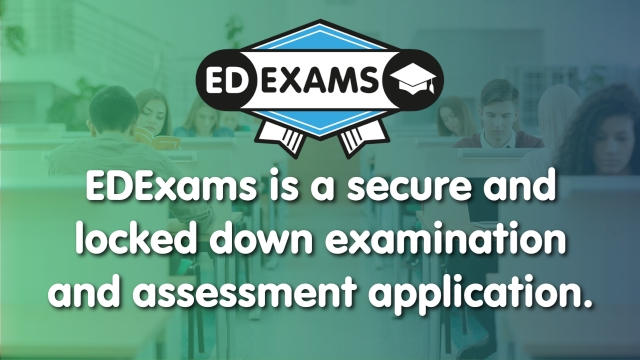One of the most common characteristics of all students who will be taking tests is exam anxiety. This test anxiety, along with a number of other issues, can prevent someone from successfully passing an exam. Even while this is not particularly unusual, it may have a negative impact on how well one does during the exam. Here are the top 5 pieces of advice for passing an exam.
Use a range of exam studying strategies
A person can be very worried about passing an exam if they have one coming up soon and might not be well prepared for it. The ideal preparation for an exam is thorough studying, but even if you are not well prepared, you might just be able to pass it. You can approach the various sections of the test using a combination of effective exam strategies, such as carefully reading the questions, tackling the easier questions first. It’s crucial to be well-rested, fed, and at ease before the exam.
The examination approach provided by an online exam is flexible and secure. The system can rearrange and present problems to various students in different sequences once all the questions have been uploaded. This reduces the likelihood of cheating. For a paper-based exam, however, this is not feasible because the document cannot be printed individually for each student, leaving room for fraud.
Use online to your advantage
The adoption of an online examination system reduces the chance of the paper being compromised while being distributed to various testing locations. Online tests are advantageous because they can be administered regardless of the candidate’s location. A web camera and microphone can be used to conduct test surveillance. More than thousands of students can take an exam that is administered remotely without having to pay for travel or lodging. The students save a lot of money because of this. The issue of scheduling exams across different exam centres, hiring invigilators, and providing security to these exam facilities is also resolved by doing adoption online examination practices.
The logistics cost of an online exam is minimal. Today, technology is used to handle the examination process. When you want to administer the exam to numerous candidates in separate venues, an online examination offers great advantages. Since the result verification is also done online, there are not as many logistical expenses. The logistical expenses involved with a paper-based exam are considerable due to numerous elements, such as exam locations and the recruitment of invigilators which must be taken into account.
Within a certain timeframe, question papers and answer sheets must be provided to the authorised examination locations. Additionally, a system must be in place to transfer the returned answer sheets from across all testing locations to a single site for further analysis and assessment.
Exam strategy implementation can be accomplished by exam window monitoring. Once the online exam has begun, you can prevent the student from doing anything that you, as the test administrator, find objectionable or it violates the test guidelines, such as opening a different window on the computer next to the one being used for the exam. This attribute provides increased exam security. Discovering if a student has tried to press anything presented on the screen during the exam is made possible by sophisticated, in-depth findings that elaborate on all the data gathered linked to dishonesty during the examination.
Here are some guidelines on how you can pass your online exam with ease.
Be well-organised
The secret to taking tests successfully is being well-organised. It’s crucial to keep in mind that you should not wait until the penultimate minute to study the directions provided during an examination session. To have a solid comprehension of the subject you will be assessed on, preparation is key. Instructors frequently send emails or text messages with relevant information. There are test modules that go into great detail about everything. Contact the instructor and request clarification if there is something you are having trouble comprehending.
Ensure you are prepared
Nothing is worse than switching on your laptop to take a planned test only to find that your computer is broken or you are experiencing connectivity problems. Check out your PC as much as you can before the test. Verify its functionality and the availability of the network on your Wi-Fi connection. Give yourself enough time to obtain a different computer or, if necessary, move to a different Wi-Fi access point.
Remove all distractions
Make sure all diversions, including the TV, phone, social media, and all notifications, are switched off. Prepare young children or pets in advance, or locate someone to watch them so you may move forward without interruption. Collect everything you will need, such as books, notes, pens, and pencils, to solve different problems presented in the question paper. If you only have a limited amount of time to complete the examination, set a timer or clock to sound an alarm fifteen minutes or before the deadline or earlier so you will know how long you have left. Do remember to go back and respond to any questions you missed.
Before submitting your work, give yourself time to examine and edit your answers. Ensure that all questions are answered. Keep in mind that you will often not receive any credit for questions you skip. Make sure to take the practice test if your professor provides it for you. Additionally, you can locate mock exams in your handbook, and taking these will give you a proper idea of the online exam even before it is conducted.











